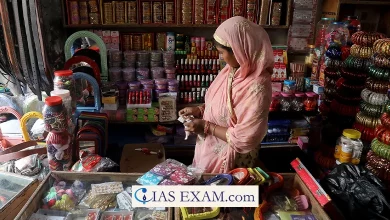The Dangers of Draft Data Policy
[GS Paper 3 – Science and Technology]
The MInistry of Electronics and Information Technology (MeitY) recently released the “Draft India Data Accessibility & Use Policy 2022”. The policy aims to radically transform India’s ability to harness public sector data.If the draft bill is passed by the Parliament, it would govern, “all data and information created/generated/collected/archived by the Government of India” as much as, “State Governments will also be free to adopt the provisions of the policy”.
The Draft Data Policy will serve the twin purposes including government-to-government sharing and high value datasets for valuation and licensing.
Reasons to Scrap of the Draft Policy
- Issue with Privacy:
- Public data is now being viewed as a prized asset of the Union government that should be freely shared, enriched, valued and licensed to the private sector.
- Given that more data means more money, commercial interests will prompt the government to collect granular personal details through greater capture and increased retention periods.
- Tying government policy determinations with a fiscal potential may also lead to distortion of the aims of data collection. There is no indication that consent will be sought in a meaningful form.
- Transparency:
- The second issue emerges from the disingenuous phrasing of “making data open by default”.within the present draft data accessibility policy, while the phrase “open data” has been used, its values and objectives are absent.
- Of the 13 objectives listed, only one is relevant to transparency and is limited to a single sentence. The primary, overpowering objectives in the draft data accessibility policy and the background note are commercial.
- While adopting the language of open data it strays from its core principle of providing transparency of the Government towards its citizens. There is only one mention of transparency and little to no mention of how such data sharing will help ensure demands for accountability and redress.
- Perverse Revenue Objective:
- A larger trend of policy-based administration these days is being detached from our constitutional framework. This is a malady afflicting large areas of data governance, with confusion on the enactment of a data protection law.
- The policy bypasses parliament as it contemplates large scale data sharing and enrichment that will be borne from public funds.
- Further, the constitution of offices, prescription of standards that may be applicable not only to the Central government, but even State governments and schemes administered by them require legislative deliberation.
Way Forward
Such risks will become a reality without an independent regulatory body or penalties. Since the policy contemplates sharing data between databases of the central and state governments as well as through central funded schemes, it may also be prudent to deliberate further in the Rajya Sabha. These are the glaring issues in this short, 10-page draft data accessibility policy, which appears to transform the Union government into a data broker.





.png)



